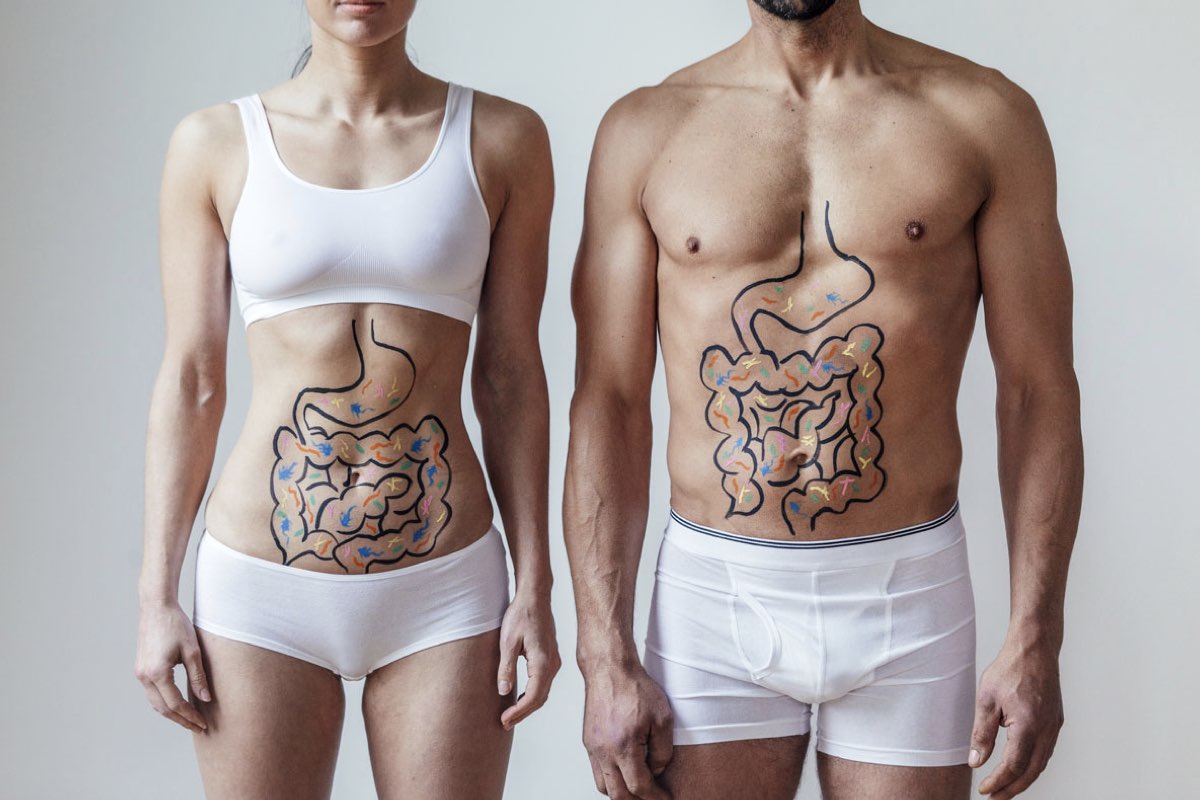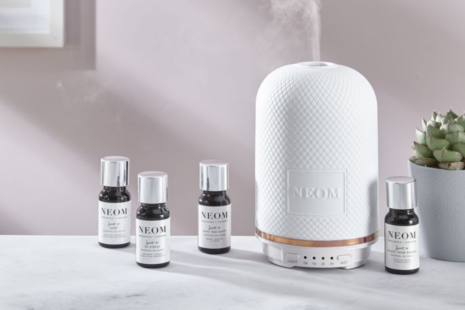“Be good to your gut” is a statement that we practically have engraved on our minds. But why is it so important to take care of it? In this article we demystify what the gut microbiome is, how we can support it with probiotics like fermented foods, and prebiotics found in fruits and vegetables with fiber. We also explore the 2021 gut health trend of postbiotics – the “waste” of gut microbes after the process of fermentation that have a range of health benefits.
Before we get our heads around postbiotics, it makes sense to start with the gut microbiome, which according to research from the Global Wellness Summit, is inextricably linked to our immunity. “There is a a growing body of research agreeing that 70% of the entire human immune system is found in the “gut”– as well as 80% of plasma cells responsible for antibody production”. So what is the gut microbiome exactly?
The gut microbiome
According to DNA Dietician, Rachel Clarkson, the gut microbiome is a collection of micro organisms in the large intestine that we all have. “Think of it like an eco system that we want to be as diverse as possible. This enables us to have the best digestion but also health in general, supporting the body with lots of anti-inflammatory compounds when these microbes ferment food that we eat, particularly something like fibre”, she says.
Dr Lipman adds: “The gut wall is the crucial barrier between your body and the outside world (which hits us with toxic substances/food, bacteria, viruses, etc.). You create a strong, protective gut wall (which determines what’s allowed into your system or not) by feeding the microbiome what it needs to thrive, and that prevents “bad” bacteria from getting out of control and overwhelming the good, which results in a ‘leaky’ gut making you susceptible to systemic inflammation. The relationship between gut health and immunity is huge, and far too many people ignore it: They have digestive problems, bloating and gas, and think it’s normal because everyone else does too.”
So how do we create a healthier microbiome?
Dr. Pelletier says: “There is strong evidence that probiotics (fermented foods) and prebiotic functional foods have an immuno-stabilisation effect on the body–probably the reason why they’re a central part of the diet of every long-lived culture on the planet. And intermittent fasting and personalised nutrition are important strategies.
What are Probiotics?
Probiotics are fermented foods. They contain live organisms and bacteria that add healthy microbes to your gut. They include yogurt and kefir with “live cultures,” sauerkraut, miso, tempeh, and kombucha (so wildly popular it’s almost become a whole “economy”).
The supplement industry has also jumped onto this. You’re able to consume live cultures in the form of a pill, a powder or a liquid. These are consumed to hopefully help someone increase the diversity of their microbiome.
You can’t call the live cultures in fermented foods probiotics because of regulation but the probiotics that we see in supplement form, we can. These can be many different varieties of bacteria, different strains or a single strain depending on which one you’re choosing.

Who should take a probiotic?
DNA Dietician, Rachel Clarkson says that “as a rule of thumb, we don’t all need to take a probiotic. Only people with real gut disorders may want to consider them. You want to be really specific about what probiotics you choose because different probiotics are better for some symptoms than others.
“In my clinic I am able to personalise probiotic recommendations based on peoples’ symptoms. Most probiotics on the market don’t even make their way to the large intestine alive. So again, a lot of people are spending a lot of money on these probiotics and unfortunately not leading to any clinical outcome”, she says.
Recap on probiotics: Probiotics are fermented foods. They include yogurt and kefir with “live cultures,” sauerkraut, miso, tempeh, and kombucha.
What are Prebiotics?
A prebiotic is the opposite of a probiotic in the sense that it’s not a live culture at all. It’s a compound called fiber. Clarkson says “Prebiotic is basically the term that we like to call the ‘food’ for these gut microbes. So we want to make sure we’re eating lots of prebiotic rich foods, so fiberous foods, in our diet. Whether that be pulses, beans, vegetables, wholegrains – anything fiberous.
We’re also seeing that many products are claiming to have prebiotics in them, which counts as extra fibre. We want to be aiming for 30g fiber a day, and we want to be getting those prebiotic sources from different types of foods rather than trying to use a prebiotic supplement to meet our requirements. That’s because all of our different microbes have different tastes, so we want a wider variety of food to ensure each microbe is nourished and the healthy ones are taking over and we’re not left with the unhealthy ones” she says.
Recap on prebiotics: Prebiotics are found in numerous fruits and vegetables with fiber and resistant starch. Because your body can’t digest them, they become food for probiotics and other healthy bacteria and microbes. Potent amounts are found in garlic, asparagus, onions, leeks, yams, bananas, artichokes, whole grains, and chicory root (the trendy new coffee alternative.)

Difference between probiotic and prebiotic
Think of probiotics as the live microbes that you want to be adding to the gut to increase variety and diversity. And the prebiotics as being the food for the probiotics and live cultures. When we’re thinking about why this is important, if you think of a healthy gut as being like a rainforest with so many different species and varieties of different plants – that’s what we want. A lot of the time, when we’re not eating diverse amounts of foods, and thinking statically about the same types of food every single day, every single week, we are less likely to have this rainforest and more likely to see a desert with very little diversity.
“Other things can also affect the diversity of your microbiome, for example getting colonics” explains Clarkson. “This can take a rainforest to a desert, so we don’t want that. And when thinking about the amount of different prebiotics we need to be consuming, thinking about 30 different plant varieties every single week. So making sure you are getting these from plants, whether vegetables, fruit, wholegrains, nuts, seeds, spices and herbs. Rotating, eating seasonally is a great way to get more variety in”.
What are postbiotics?
Now “postbiotics” are hitting 2021 wellness trends reports. They are defined as “the “waste” of gut microbes after the process of fermentation. Because postbiotics are not live (like prebiotics), they may be much easier (no refrigeration needed) to roll into more supplements and foods/beverages. Research is in early days.
Clarkson says “Postbiotics are healthy microbes within your gut that are feeding on the prebiotic fiber and this fermentation process produces bi products like short chain fatty acids such as Butyrate, which is a potent anti inflammatory that is what’s causing such amazing health benefits within the body, having this anti inflammatory compound pumped around the body.
It’s great to get lot prebiotic fiber in to feed the microbes and hopefully you are supporting supporting microbe diversity within the microbiome through fermented foods like kimchi, kombucha. A lot of the research is predominantly around kefir as being a really great source. Pickled vegetables are fantastic – like miso and sourkraut.
There are hundreds of postbiotics that have been identified by scientists and they act by improving all sorts of areas of the health of your body. They are producing b vitamins and vitamin k to help wth bloody clotting, short chain fatty acids that support with a healthy gut lining and act as signals to brain and influence metabolism, anti inflammatory effects. They act as anti microbials, which kill harmful bacteria and microbes. It’s an amazing way to keep your immune system healthy. Postbiotics are bacterial fragments and cells, that can prime your immune system to fight infection”.
So there you have it, feeling slightly less confused now? Us too.
Get your weekly DOSE fix here: SIGN UP FOR OUR NEWSLETTER
















